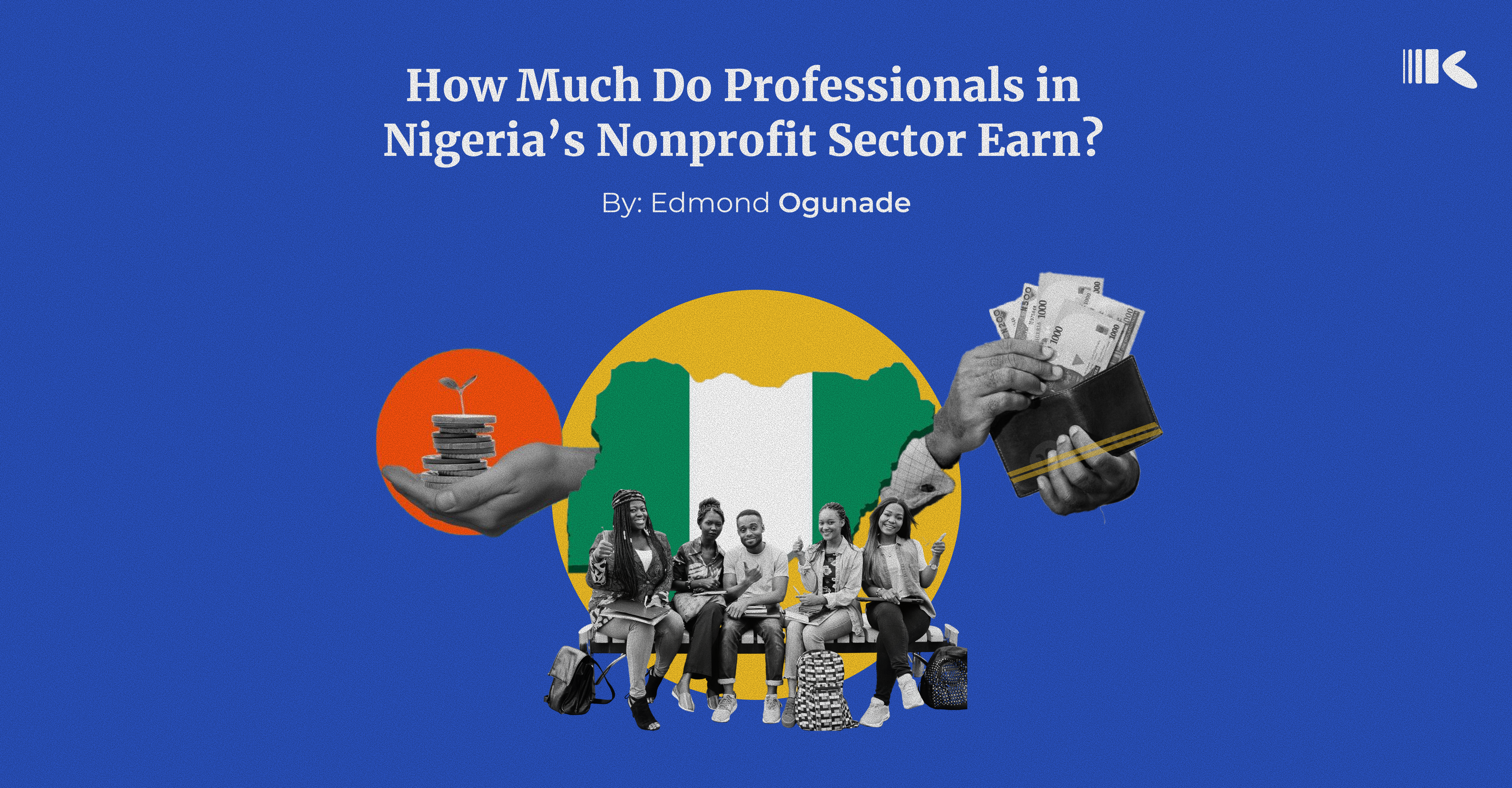Contrary to common belief that Nigeria’s nonprofit sector is solely volunteer based and low-paying, it is actively reshaping these perceptions. Far from being a space of financial sacrifice, the sector is increasingly offering salaries that rival or surpass those in the corporate world. As Nigeria’s nonprofit landscape grows, fueled by international funding and expanding budgets, it is carving out sustainable, rewarding career paths. This article explores the evolution of nonprofit salaries in Nigeria, compares them to their for-profit equivalents, and highlights the factors driving competitive compensation, drawing on recent job postings and insights from professionals in the field.
The Evolution of Nonprofit Salaries in Nigeria
Historically, nonprofit work in Nigeria was associated with modest pay, often viewed as a passion-driven pursuit. However, recent trends show a shift toward competitive compensation. According to Nexford University, senior roles at well-funded NGOs like Action Against Hunger and Jhpiego offer annual salaries exceeding ₦20,000,000 for positions such as Regional Directors or Heads of Programmes. Similarly, Entry level roles, such as Interns and Junior field staff, typically earn between ₦100,000 and ₦150,000 monthly, while mid-level positions like Program Coordinators and Monitoring and Evaluation (M&E) specialists command ₦250,000 to ₦400,000 monthly, significantly above Nigeria’s minimum wage
Job postings on platforms like LinkedIn, Glassdoor and Jobberman highlight this transformation. For instance, She Writes Woman, an Abuja based mental health NGO, was offering a salary range of ₦250,000 to ₦400,000/month for the Program Coordinator role advertised on Jobberman. Similarly, Philanthropy Circuit, a community development organization, listed a Program Officer position at ₦300,000 to ₦400,000 monthly, compared to ₦100,000 to ₦150,000 for a similar role at a for-profit HR agency like Resource Intermediaries.
These figures clearly reflect the sector’s growing financial capacity, driven by increased donor funding and a focus on attracting skilled professionals.
A Side-by-Side Comparison: Nonprofit vs. For-Profit Salaries
To understand the financial viability of nonprofit careers, consider the following comparison of roles in Nigeria’s nonprofit and for-profit sectors, based on recent job postings and salary data:
- Executive Directors: According to Payscale, the base salary for Executive Directors in Non-Profit Organisations is around N20,000,000 yearly.
- Data Analyst: At She Writes Woman, data analysts earn between ₦250,000 and ₦400,000 monthly, matching the salary range for a similar role at Smollan, a for-profit marketing firm. This parity highlights how nonprofits are aligning with corporate standards for specialized roles.
- Program Officer: As advertised on Jobberman, Philanthropy Circuit offers program officers ₦300,000 to ₦400,000 monthly, while Resource Intermediaries, a corporate HR firm, pays ₦100,000 to ₦150,000 for a comparable position, demonstrating a significant nonprofit advantage.
- Field Manager: A field manager at a disability-focused nonprofit in Port Harcourt earns ₦800,000 monthly, compared to ₦300,000 for a similar role at a logistics company. This gap underscores the earning potential in donor-funded nonprofit programs.
However, locally funded NGOs may offer lower base pay, supplemented by benefits like housing, transport allowances, or stipends, which can enhance overall compensation packages.
A Case Study: The High-Earning Nonprofit Professional
Consider the story of a field manager at a disability-focused nonprofit in Port Harcourt, who requested anonymity. Earning ₦800,000 monthly, he supports his family and funds education, a stark contrast to his previous corporate role at a logistics firm, where he earned ₦300,000. “People assume nonprofit work can’t sustain a livelihood,” he shared. “But in my role, I’m not only making a difference but also earning more than I did in the corporate sector.” His experience reflects a growing reality: well-funded nonprofits are offering salaries that enable professionals to thrive financially while pursuing meaningful work. This trend is particularly pronounced in donor-funded programs, where budgets allow for competitive compensation.
Why Nonprofit Salaries Are Rising
NGO worker salaries are determined by several key factors that reflect organizational priorities and external realities. Seniority plays a significant role as higher-ranking roles with greater leadership responsibilities command higher pay. The complexity of an employee’s duties also matters; specialized roles requiring unique skills often offer better compensation due to a smaller candidate pool. Professional experience is another factor, with seasoned workers earning more based on their expertise and past compensation. Salaries are benchmarked against industry standards, ensuring competitiveness with similar NGOs. Finally, organizational size impacts salaries, as larger NGOs with bigger budgets typically pay more than smaller, resource constrained ones.
The Bigger Picture: Impact and Opportunity
For young Nigerians and seasoned professionals alike, the nonprofit sector offers a compelling blend of social impact and financial stability. Roles in community health, education, research, and outreach such as program coordinators, project officers, and data analysts, are in high demand, with salaries that challenge the notion that purpose-driven work requires financial sacrifice.
Final Word
Nigeria’s nonprofit sector is quietly redefining what it means to pursue a purpose-driven career. Professionals in roles like program management, data analysis, and field operations are finding financial stability while making a tangible impact in communities. As the sector continues to attract global funding, it stands as a vibrant, viable avenue for career growth and social good. For those seeking to balance purpose and prosperity, Nigeria’s nonprofit sector is proving that you don’t have to choose.
